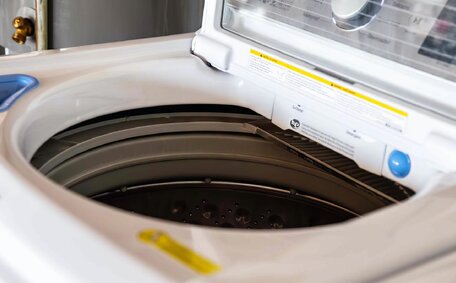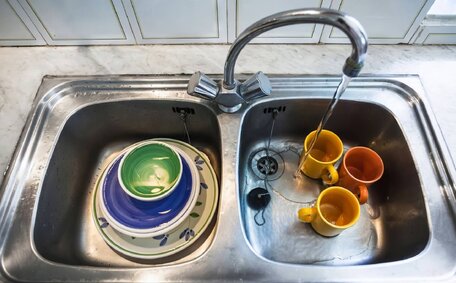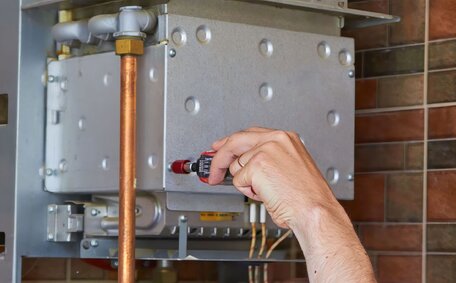How Do Seasonal Changes Affect Pipes?
Parramatta’s climate changes can significantly impact plumbing systems. Fluctuating temperatures and extreme weather associated with La Niña place pipes under considerable stress. Meanwhile, winter brings plummeting temperatures that can cause pipes to contract and crack. Intense storms and heavy rainfall can overload drainage systems, causing pipes to burst and basements to flood.
High summer temperatures hasten pipe deterioration.
Seasonal variation can speed up how quickly pipes can degrade and malfunction. Pipe relining offers an effective, less invasive solution to environmental impacts. Unlike pipe replacement which requires extensive digging, relining reinforces the inside of pipes without destroying landscaping or driveways.
At the start of each season, be alert for signs of pipe issues such as gurgling drains, damp patches, unpleasant sewage smells, and low water pressure. For extensively damaged pipes, relining is a superior alternative to restore strength and avert severe failures that could cause water damage to your property.
Increased Rain and Flooding
La Niña’s excessive rainfall can saturate soil, causing pipe shifts and breaks. Overflowing gutters can also strain sewer systems and lead to basement flooding, exposing pipes to damaging water.
All this wet weather damage makes pipe relining an attractive alternative to replacement. Unlike digging up pipes, relining reinforces the inside of pipes without destroying landscaping. Epoxy resin seals cracks and holes while maintaining pipe capacity.
Before a rainy spell, regularly evaluate your plumbing, particularly your toilet, for any typical problems. Identifying issues promptly can stop unexpected pipe failures, leading to suggestions for optimal repair or relining strategies.
On noticing signs such as root ingress, damp spots, bad smells or reduced water pressure, utilise our CCTV drain camera service to thoroughly inspect the condition of your pipes.
Hotter Summer Temperatures
Summer’s hotter temperatures put residential and commercial plumbing systems under considerable strain. As the mercury climbs, pipes expand, placing joints and seals at risk of cracking from increased usage such as washing machine cycles.
In homes, Increased showering and dishwasher cycles strain your hot water systems. Temperature fluctuations cause tanks to corrode faster while sediment buildup reduces efficiency. Commercial kitchens battle grease blockages from washing extra dishes. Temperature fluctuations cause tanks to corrode faster while sediment buildup reduces efficiency.
Before summer, ensure your plumbing can cope with increased demand through an inspection. Check for leaks, blockages and root intrusion which indicate at-risk pipes. Catch issues early on and discern if your pipe need trenchless relining rather than the more disruptive traditional replacement.
And confirm waste lines flow freely - Ensuring your drain can clear any obstructions before pipes fail or rupture from overuse.
Colder Winter Temperatures
Colder winter temperatures in Parramatta can wreak havoc on pipes. Dropping temperatures contract the ground, stressing and potentially cracking pipes. Frigid conditions also lead more water to freeze inside pipes, expanding with immense pressure against pipe walls.
These winter stresses make a compelling case for pipe relining over full replacement. Relining reinforces the inside of pipes without destroying landscaping or driveways. Epoxy resin effectively seals cracks and maintains pipe capacity.
In the lead-up to winter, conduct a thorough appraisal of your plumbing for potential issues, such as dampness, low water pressure, unusual noises, offensive odours, or evident root encroachment.
Identify and address issues promptly before they lead to further damage or catastrophic failure.
Allow taps to drip to keep water moving and prevent freezing. Proactively thaw pipes to prevent bursting.
Be vigilant for leaks or drips which may indicate ice blockages. During severe cold, insulate exposed pipes to prevent them from bursting.
Understanding Pipe Relining
Pipe relining is an inventive no dig repair technique that renews old, damaged pipes without the need for full replacement. This technique coats the inside of the existing pipe with epoxy resin, sealing any cracks or holes, and eliminates the need to dig.
This no-dig solution prevents the need to excavate gardens and driveways to access pipes. It also restores structural integrity, pressure and flow capacity at a fraction of replacement costs. Pipe relining may prolong pipe life by over 50 years.
It’s crucial to realize that seasonal changes, extreme temperatures, and flooding can accelerate pipe degradation. Pipe relining robustly safeguards and affects your plumbing system by fortifying it against environmental damage. It’s faster, cleaner and less disruptive than replacing an entire pipe.
When you notice problems like moisture, odours, low pressure, or root intrusion, consider relining. Our CCTV drain cameras scoped the full extent of damage to suggest the best trenchless repairs.
Pipe Relining vs Replacement
Confronted with ageing or damaged pipes, homeowners must choose between replacement or trenchless relining. Replacement is disruptive, involving heavy machinery and potential damage to property.
In contrast, pipe relining coats the inside of pipes with epoxy resin without digging. Through relining, your pipes can last for 50+ years, offering a cost-effective alternative to full replacement.
It seals cracks and holes while maintaining flow capacity and pressure. The process takes just one to two days with minimal property disturbance.
We suggest relining over replacement for most Parramatta homes. It prevents destroying landscaping while restoring your plumbing system from the inside out. Relining also works on a wide variety of pipe materials like clay, concrete and PVC to renew functionality.
However, for pipes that are significantly collapsed, obstructed, or misaligned, replacement may be necessary. Our drain camera inspections assess the full extent of damage to determine whether you need replace section pipe areas or can opt for relining. Overall though, pipe relining tackles degradation from seasonal changes in a fast, affordable and non-invasive manner.
How Relining Works
The pipe relining process involves inspecting, cleaning and then lining old pipes with an epoxy resin material to seal damage without digging.
First, Our skilled technicians inform you about pipe conditions by using advanced drain camera technology. Next, they clean the pipes with high-pressure water jets to remove grime and prepare surfaces.
A resin-saturated liner is inserted through an access point like a manhole. It hardens to form a smooth, jointless pipe, sealing cracks and holes. The epoxy barrier prevents infiltration while maintaining flow capacity and pressure.
Pipe relining reinstates structural integrity, fortifying against seasonal stresses for over 50 years, and accomplishes this without need for upturning gardens or driveways. Get your pipes revitalised with our minimally invasive yet robust relining solution that requires no excavation.
Benefits of Pipe Relining
Experience the benefits pipe relining offers over traditional replacement methods. Some key advantages include:
- Longevity - Epoxy resin liners can extend a pipe’s lifespan by 50+ years.
- Cost-effective - Relining costs a fraction compared to complete replacement.
- Minimal disruption - Avoid the inconvenience of digging up the areas under your gardens, driveways, or interior floors.
- No future root damage - Epoxy barrier prevents root infiltration.
- Prevents leaks - Seals cracks, holes and joints.
- Maintains flow - Restores water pressure and capacity.
- Environmentally friendly - Produces less waste than replacement.
- Speed - Pipe relining takes 1-2 days compared to weeks.
- Versatile - Works on clay, concrete, PVC and more.
Pipe relining renews your plumbing with minimal property impact, combating seasonal wear. It’s a smart, non-invasive solution that saves you money while restoring pipes for decades of reliable service.
When to Schedule Pipe Relining
Sustain robustness in your plumbing system all year with preventative plumbing measures; consider scheduling pipe relining during quieter seasons. Winter or summer holidays allow ample time for repairs so you can avoid disrupting busy periods.
However, act swiftly if you observe problems such as dampness, bad smells, drainage complications, or low water pressure. The sooner we can inspect damage using CCTV cameras, the better chance we can remedy plumbing problems with affordable relining instead of full replacement.
To prepare for seasons like winter or rainy La Niña periods, get your plumbing checked for signs of wear, root intrusion or freezing risk. We perform pipe maintenance to shore up vulnerabilities before pipes fail under seasonal stresses.
Overall, early intervention gives the highest chance of fixing problems without major excavation work later on. Avoid the disastrous outcomes of broken pipes, which can incur water damage and expensive repairs for your property. Call us on 1300 349 338 or email jobs@parramattaplumbingservices.com.au about your relining needs today.
Signs You Need Pipe Relining
There are several clear signs that your pipes require relining. Water stains on walls and ceilings often indicate leaks, highlighting the need for timely pipe repair. Meanwhile, decreased water pressure, especially during peak usage times, suggests internal corrosion and buildup is constricting pipe capacity.
You should also listen for unusual gurgling noises coming from pipes, drains or taps when water runs. This is often a sign of blockages or air pockets in the system. Additionally, foul sewage odours escaping from sinks or floor vents point to breaks in your sewer line.
Observing any warning signs, afford us the chance to engage in preventive measures through a detailed pipe inspection. We can scope interior damage with CCTV drain cameras and suggest affordable relining instead of full replacement if issues are caught early. Don’t wait until you experience problems like flooded basements, as early detection can help in preventing soil erosion or collapsed pipes.
Preparing Pipes for Seasonal Changes
When preparing your plumbing system for seasonal changes, follow these helpful tips:
- Inspect pipes before extreme weather - Check for cracks, leaks and blockages using a drain camera so issues can be addressed before causing failure.
- Invest in drain cleaning pre-emptively before rainy periods to prevent clogs and flooding by removing debris, roots and buildup.
- Insulate outdoor pipes before winter - Protect exposed pipes from freezing temperatures by wrapping them with insulating foam covers.
- Keep your water heater running efficiently by flushing it annually to remove sediment that leads to corrosion and reduces heat efficiency.
- Trim vegetation near pipes - Remove roots that can infiltrate and damage pipes underground.
- Remain alert for early indicators, addressing minor leaks swiftly before they escalate into significant flooding risks.
- Think about preemptive epoxy pipe relining; our trenchless method reinforces older pipes against seasonal stress and potential failures.
In urgent situations, Don’t hesitate to reach out and prevent a plumbing emergency. Schedule maintenance inspections so we can assess seasonal risks and take proactive steps to protect your pipes. Reach out to your local Parramatta Plumbing team today on 1300 349 338 to secure your home’s pipe inspection and relining services.
Preventing Weather-Related Damage
You can take several preventative measures to protect your plumbing from weather-related damage:
- Insulate outdoor pipes and taps to prevent freezing and bursts during winter.
- Root barriers can be installed to protect against invasive growth around underground pipes.
- Conduct regular inspections and cleanings of your sewer systems to remove debris well before the onset of rainy seasons.
- Waterproof basements and seal foundation cracks to prevent flooding.
- Monitor your plumbing system for leaks, odd noises and other warning signs.
- Trim back vegetation to prevent leaves blocking gutters and drains.
- Consider epoxy pipe relining to reinforce interior walls against corrosion and cracks.
Don’t wait until you have a weather-related emergency. Schedule maintenance checks with our team at Parramatta Plumbing. Our CCTV drain cameras can inspect the full extent of pipe damage and pinpoint risks.
We can then reline pipes affordably or conduct targeted repairs to reinforce them before seasonal changes lead to irreversible damage. Book our expert service today on 1300 349 338 and sidestep potential weather-related plumbing disasters.






